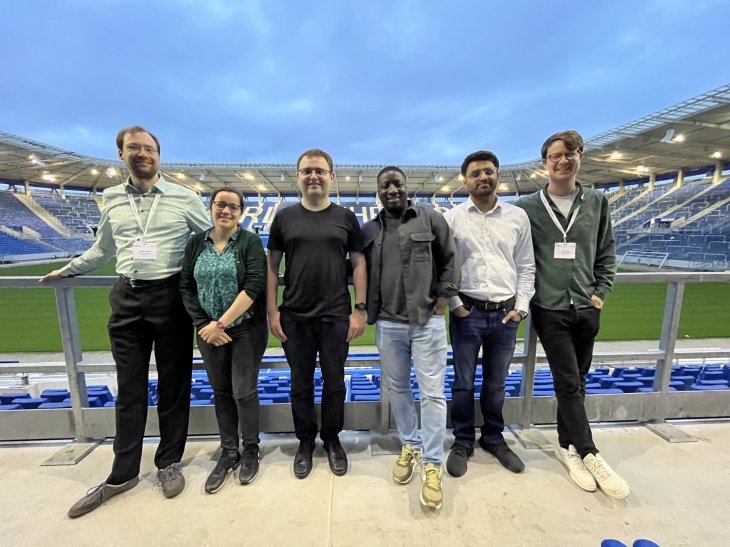AI for Earth and Environment
The Helmholtz AI Consultants are dedicated to a topic that concerns researchers around the world: How can Artificial Intelligence (AI) be effectively used in science? Where are the opportunities, where are the risks? And how can it all be technically implemented? Since the beginning of the year, the consultants have been based at the Helmholtz-Zentrum Hereon, forming a Helmholtz-wide contact point for scientists in the research field of Earth and Environment.
The Hamburg office of Dr Tobias Weigel is unassuming. No pictures on the walls, a tidy desk with a curved monitor. But the organized chaos resides inside the computer. Weigel is passionate about his field, one can feel it when he talks. He scrolls with his index finger, searching for a graphic. And indeed, he’s turning some major wheels right now: He and his six-person team provide guidance to researchers who want to integrate AI and Machine Learning (ML) into their work.
Diverse Tasks

Tobias Weigel and his team from the Helmholtz AI Consultants for Earth and Environment. Photo: Paul Keil
“Sometimes it's a one-hour phone call, sometimes it's months-long mentoring,” Weigel explains. Helmholtz AI Earth and Environment is a long-term platform that has existed for five years. Initially based at the Deutsches Klimarechenzentrum (DKRZ), it was integrated into Hereon in 2025. There are hardly any areas of society where AI doesn’t play a role anymore—and the Helmholtz Association has not only recognized this but is significantly expanding its activities across disciplines. “That’s why we support a wide range of Helmholtz research — whether it’s environmental, climate, or geosciences,” says Weigel, who studied geoinformatics and earned a PhD in computer science. His team’s expertise spans physics, meteorology, geosciences, and various IT disciplines.
Support is available, for example, when Hereon researchers from the Institute of Coastal Environmental Chemistry work with data from around 15 air pollution monitoring stations — from the Altes Land region to major traffic arteries in Hamburg. When they analyze nitrogen dioxide concentrations, AI can help improve data resolution. AI accomplishes this by integrating large volumes of environmental data. It identifies concentrations — for instance, where and when fine particulate matter is especially prevalent. Machine learning methods are also used, capable of predicting pollution patterns. This allows AI to fill in missing data, estimate local pollution levels, or forecast air quality for the coming days — even in areas without sensors.
Observation data are combined with model data. “The goal is to better process and then understand the data,” says Tobias Weigel. The AI is continuously trained with new data. A portion of the data is withheld for later testing: Do the results hold up? This is the same principle used in weather forecasting or early warning systems for extreme events.
Intensive Service
Other capabilities include developing hybrid models that combine AI and physics-based Earth system simulations, optimizing existing workflows using machine learning, and analyzing large datasets from satellites or simulation models. The group regularly offers training sessions, workshops, and consultations to support knowledge transfer. They also assist with the use of high-performance computing resources. The main office is located in Hamburg; in Geesthacht, the consultants hold monthly team days with seminars and “walk-in” consulting sessions.
A special service is the so-called “AI Voucher” system: researchers can submit project ideas and receive tailored support in the form of time and expertise — typically during three to six-month “sprints.” During this time, a prototype is developed collaboratively. “We handle every request, but we’re quite busy,” says Weigel. Especially given how rapidly AI capabilities are evolving, the topic will remain exciting for him and his colleagues. And they will continue doing everything they can to keep the growing data diversity under control.
Contact & related links
Head of Department
Helmholtz AI Consultans Earth and Environment
Phone: +49 (0)4152 87 - 1592
